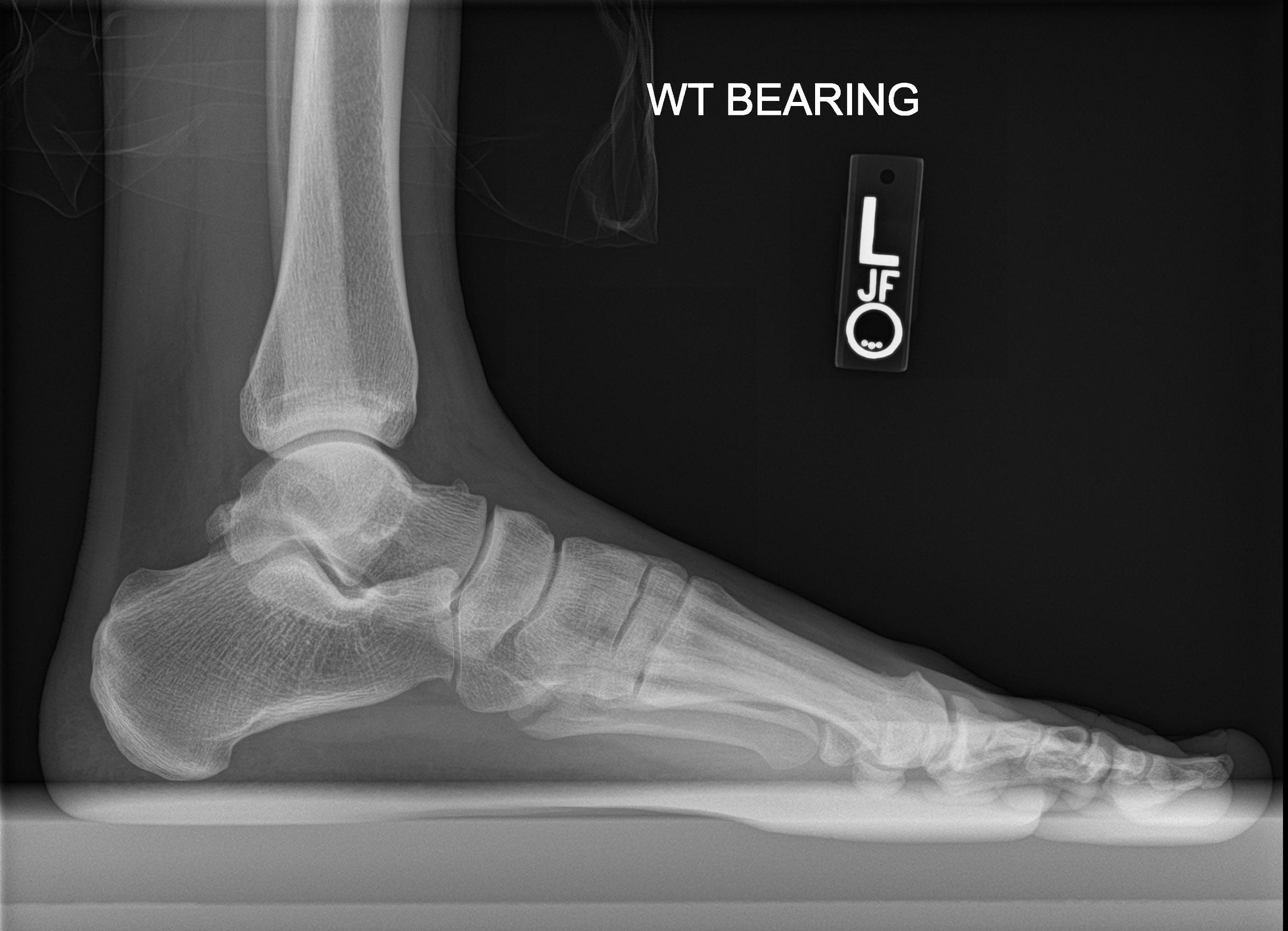Are Vitamin D and Calcium Supplements Beneficial for Fracture Healing?
A couple weeks ago I fractured the 5th metatarsal in my foot during a game of basketball. I had just finished up a season of ski instructing in Breckenridge, CO so it was incredibly ironic to make it through the ski season without any injuries, only to break my foot while casually playing a game of pickup basketball. It was a simple diagnosis, and after four weeks in a CAM boot I should be good to go. As I got up to leave the examination room, the doctor's assistant mentioned that if I wanted to facilitate the healing process I could consider taking a calcium supplement or multi-vitamin. Historically the research has been inconclusive on whether vitamin supplementation is effective or possibly even harmful, so I decided to look into this statement a bit further.
Background
I am a 24 year old male in good health. As an active young adult this fracture will likely heal quickly without any type of supplementation, but it’s never bad to do a little research and see if there are ways to make the recovery process more efficient.
The Research Gap
Little to no research exists on how vitamin supplementation may affect fracture healing rate and outcomes in my population of young, healthy males with no prior conditions such as osteoporosis. The little research that does exist on this topic either centers around an older population with osteoporosis, or focuses on fracture prevention through vitamin supplementation in those populations. This makes sense as there’s less of a need to research the implications of vitamin supplementation in fracture healing in young adults since the recoveries are typically swift and without issue.
I’m curious though, and it’s an interesting subject to get into. There’s a little bit of research on this question using animal models, so the majority of this article will deal with results from animal trials. Realize that while animal models are the first step to human trials, the results don’t necessarily transfer directly to humans. While I can create a hypothesis based on this research, it would need to be tested with humans to determine its efficacy.
Do Supplements Help?
When it comes to bone health, the two most frequently discussed supplements are vitamin D and calcium. While calcium is the building block of bone, vitamin D is necessary to facilitate the absorption of calcium from dietary sources.
Groups commonly at risk for calcium deficiency include postmenopausal women, amenorrheic women, vegetarians, and those with lactose intolerance. On the other hand, vitamin D deficiency is generally agreed to affect a broader population of patients. One study calculated the prevalence of vitamin D deficiency to be above 40% within the general population of the US. Enough of the numbers though, let’s look at what the research says.
As it turns out, even the research admits there is a huge knowledge gap on the topic of whether vitamin D supplementation is beneficial for fracture healing in humans. In a literature review researchers looked at 11 animal studies that addressed this issue. Of these studies, 2 showed negative results, 2 were neutral, and 7 showed vitamin D as producing beneficial outcomes. Keep in mind that there may be a publication bias here as studies with negative results may have a lower chance of being published. Regardless, these studies don’t provide clear evidence whether vitamin D supplementation is beneficial or harmful.
There is one relevant study in humans though, and although its power is hampered by the sample size, it is closer to what we’re looking for. This study looked at a group of 30 Danish women with a mean age of 77.7 years who all sustained a proximal humerus fracture and exhibited osteoporosis or osteopenia. Half of the group received 1g of calcium and 800 IU of vitamin D3 taken twice daily for 12 weeks while the other half received placebo pills. During the study the patients actively taking the supplementary vitamin D3 and calcium exhibited statistically higher bone mineral density in the fracture region. The study concluded that this supplementation could be seen to have a positive effect on the fracture healing process.
While the population of this study doesn’t perfectly apply to myself, it does give support to the idea that supplementation of calcium and vitamin D may facilitate the fracture healing process, especially in individuals who may be deficient in either.
Here's a little more information on one of the studies referenced in the literature review. This study utilizes a rabbit model to see the extent to which vitamin D3 supplementation affects fracture healing. Results were culled from a group of 14 rabbits which all had their femurs cut mid shaft and subsequently fixed with an intramedullary rod. Following this, half of the rabbits were injected with a high dose (50,000 IU/kg) of vitamin D while the other group received saline. The femurs were harvested six weeks later and tested for factors such as maximum load and flexural rigidity. The average maximum load in the vitamin D group was 208 N while the average among the control group was 115 N, which was statistically significant. It should be noted that the difference in the maximum loads of unfractured femurs in the vitamin D and control groups were not statistically significant, so it can be presumed that the vitamin D infusion played a role in fracture healing but less of a role in the maintenance of bone.
Then there's a wrench in all of this. There’s a whole other discussion of whether vitamin D supplementation is considered to be effective without concurrent calcium supplementation. In a study from 2010, researchers determined that vitamin D and calcium administered together effectively prevented fractures across all age groups whereas administration of vitamin D alone had no effects. There is obviously a difference in the role of vitamin D regarding fracture prevention compared to fracture healing, but this is certainly something to look into further.
Bottom Line
There is little research that clearly indicates whether calcium and/or vitamin D supplementation is beneficial for fracture healing. Additionally, what little research there is often used an older patient population due to the interplay between conditions such as osteoporosis and fractures. A few studies in animal models do point to vitamin D enhancing fracture healing, however only one such study was done in humans, leaving a very large research gap. As for me? I decided to take a high dose of vitamin D at the beginning of the healing process, and I’ll let my body do the rest.
Medical Disclaimer: I am not a doctor. Information from this website is opinion and should not be construed as medical advice. For specific questions on health please consult a medical professional.
Questions or Comments?
Did I miss something? Have a comment? Post below and I’ll do my best to address it.
Like this post? Sign up below for an email newsletter from the site. No spam, I promise!







Studying for Step 1 is often a source of anxiety for medical students since it's seen as such a monumental task and high stakes exam. The purpose of this article is to distill some of my experience with the hope that it can help others be less stressed & better prepared for this exam in the future.